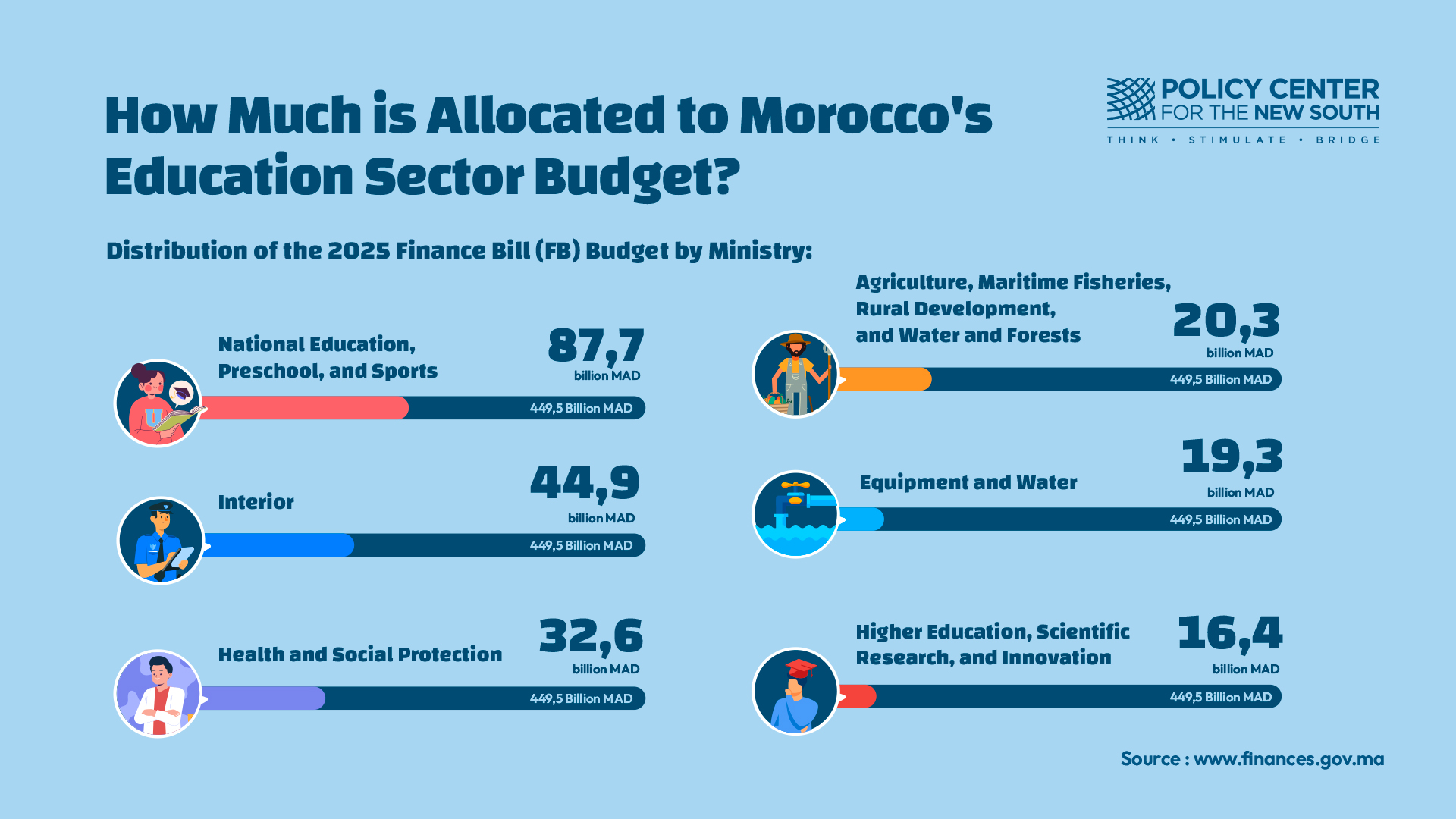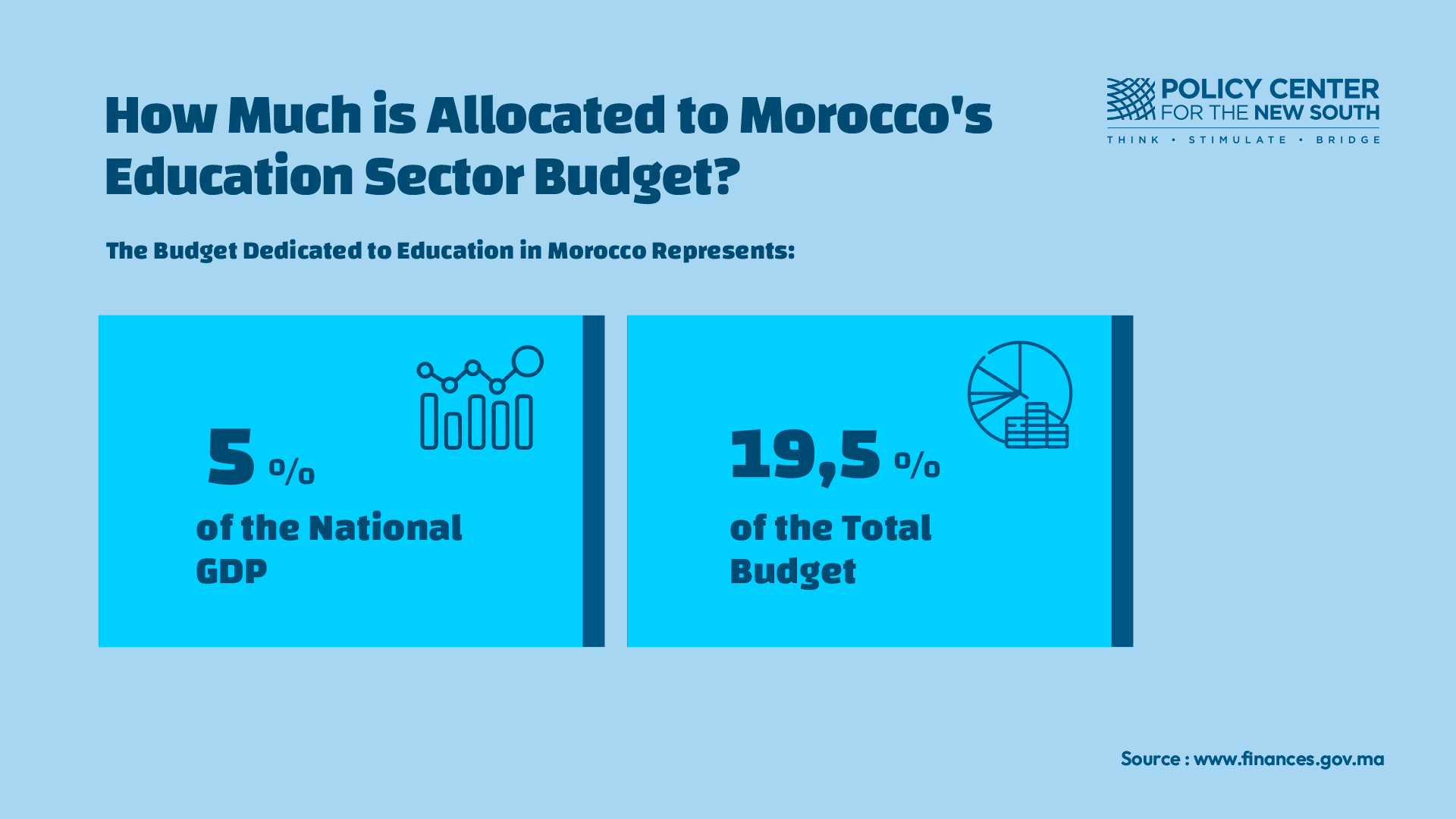Is Increased Funding Enough to Transform Morocco's Education System?
Morocco Allocates Significant Budget for Education
Education remains the largest sector in Morocco’s national budget, receiving over 87 billion MAD (Moroccan Dirhams). This substantial allocation is complemented by the creation of 16,364 positions within the Ministry of National Education, highlighting the government’s commitment to the sector. Collectively, education accounts for more than 5% of the country’s GDP, emphasizing its central role in national development. In the 2025 budget, the government allocated significant funds to three key ministries, which together account for 36.7% of the total state budget:
- Ministry of National Education, Preschool, and Sports: 87.7 billion MAD
- Ministry of the Interior: 44.9 billion MAD
- Ministry of Health and Social Protection: 32.6 billion MAD


This distribution indicates that education is treated as a priority, alongside other critical sectors such as internal affairs and healthcare, reflecting the government's recognition of education’s importance in shaping Morocco’s future.
Growth of the Education Budget
The education budget has grown at a rate that outpaces the overall national budget, signaling a growing recognition of education's role in the country’s social and economic development. This financial boost is likely driven by the need for educational reforms, infrastructure modernization, and an alignment of curricula with evolving labor market demands.
While the increase in funding signals a strong government commitment to improving education, it raises important questions about the effectiveness of financial investment alone. Despite the significant rise in the budget, can this increased funding alone address the systemic challenges within the sector? Or is there a deeper need for structural reforms to align the educational system with international standards and meet the needs of a changing global economy?
Key Questions
- Why does the relatively high level of public spending on education fail to produce better outcomes, such as lower failure rates, reduced dropout rates, and improved employment opportunities for graduates?
- What additional measures must be taken to enhance the efficiency and effectiveness of Morocco’s education system?
- Why is increased funding not sufficient to improve education quality?
- Why is a comprehensive reform of educational structures, methodologies, and operational strategies crucial for long-term success?
- After over 25 years of continuous reforms, why does Morocco’s educational system still struggle to meet societal expectations?
These questions highlight the disconnect between financial investment and the outcomes in Morocco's educational system. While funding is undeniably important, it may not be enough to resolve the deep-rooted challenges without significant changes in the system’s structure, approach to teaching, and operational models. Morocco’s path forward may require not just increased resources but a more profound commitment to reforming educational methodologies, enhancing governance, and aligning curricula with the needs of the modern workforce.
The future of Moroccan education depends on a balanced approach that combines financial investment with genuine structural transformation, ensuring that the system can adequately equip young people for the demands of the 21st century.

